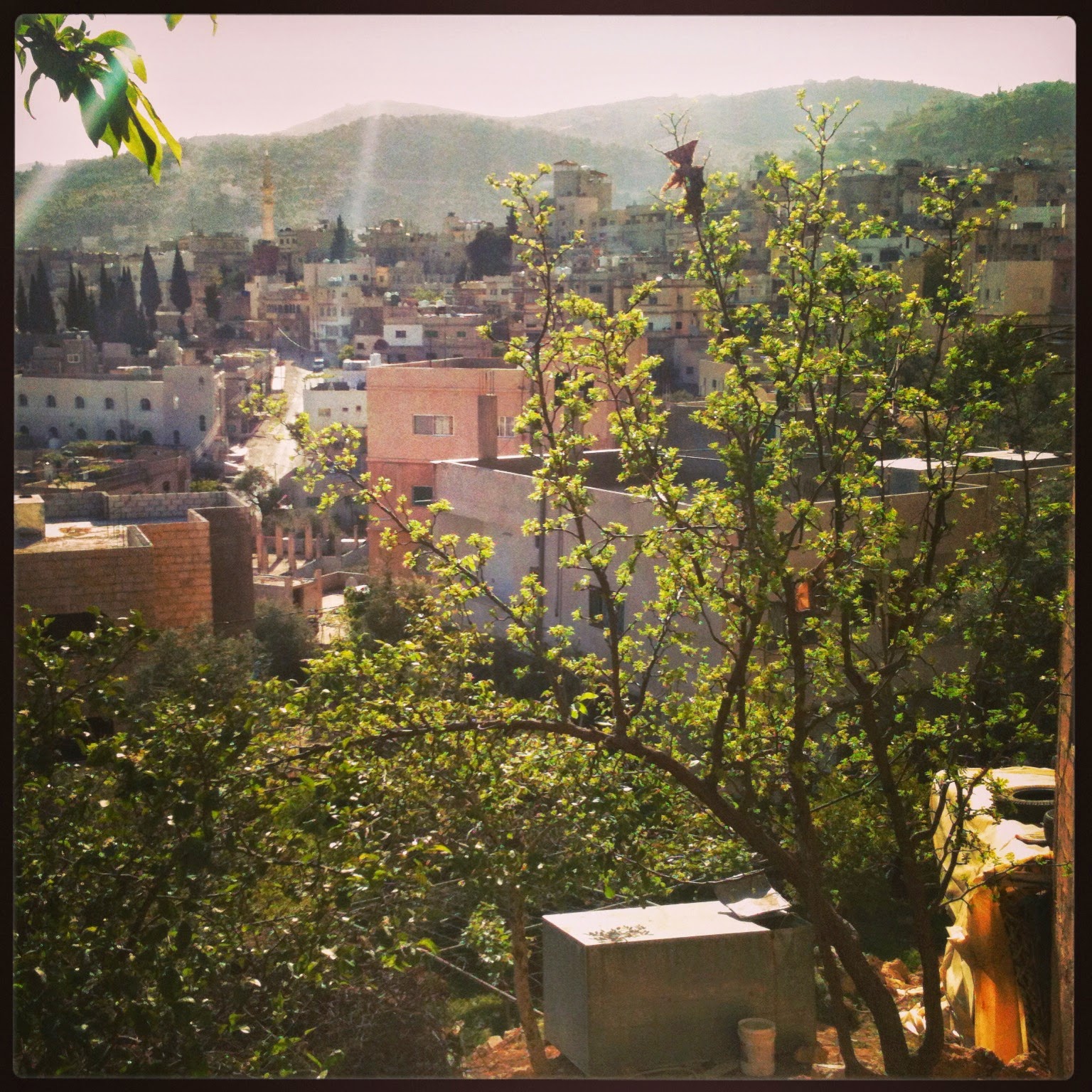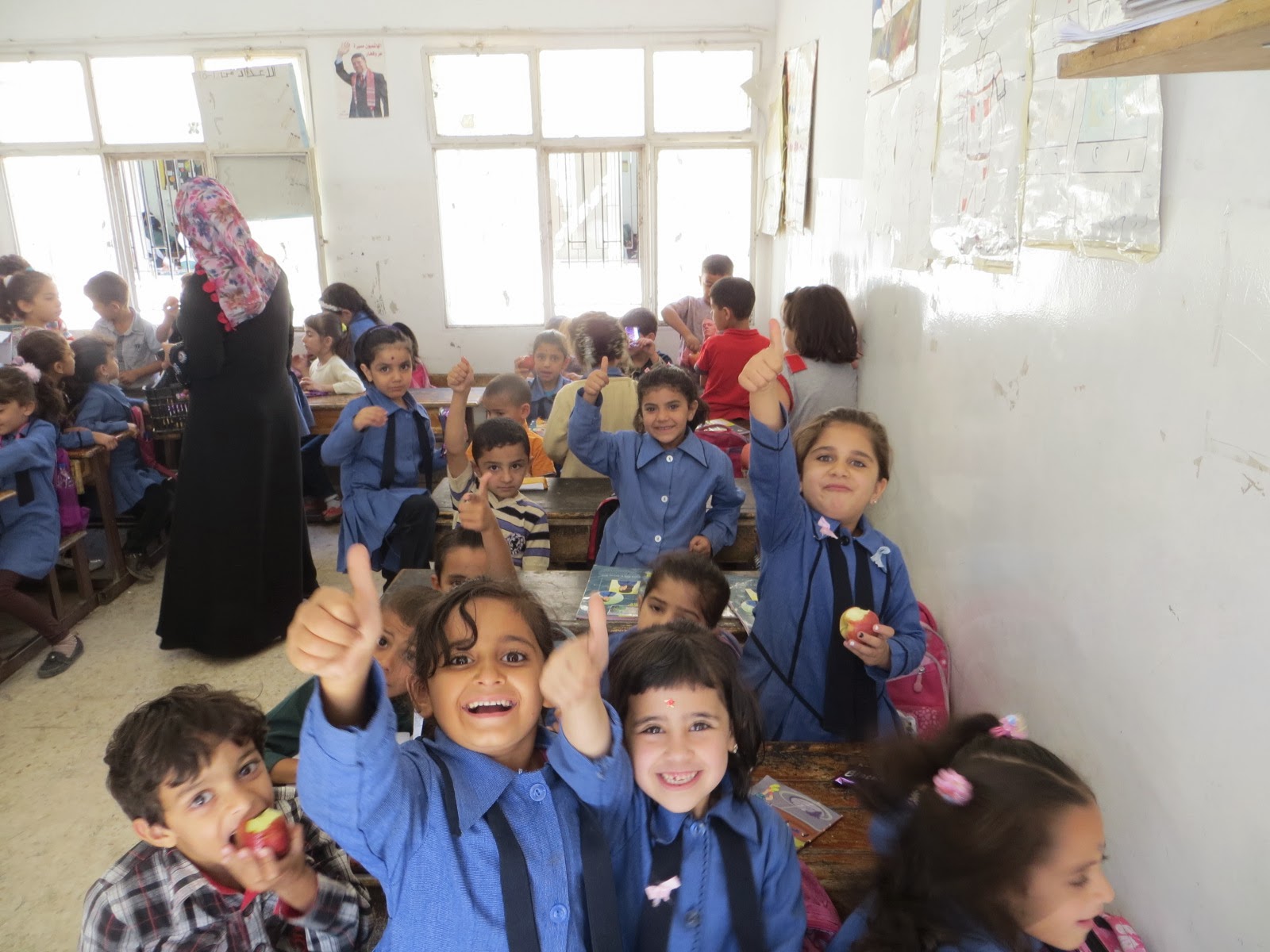With this title I am speaking quite literally. Spring is in the air. More specifically, olive tree pollen is in the air. I only know this because it turns out I am quite allergic to it.
Other than that, Spring is going well. March and April were comfortably warm but now I'm pretty sure the summer heat has officially arrived. Spring in Ajloun is so beautiful. Flowers pop up out of nowhere, and every week a new fruit is being plucked off the trees and stuck in kids pockets, only to be pulled out and shared with you later. Almonds, mullberries (toot), eskadenia (loquat in English), hummus (raw chickpeas) and so much more to come.
 |
| Eskandinas |
 |
| View of my landlord's farm, right below my house |
We're over 3 months into the semester with only a couple of weeks left, and all of the students and teachers are clearly ready for the summer holiday. I love my students, really, but I must admit that I too am looking forward to a break from the daily routine.
This semester I have taught 1st, 3rd, and 9th grade English and have done a narrative writing class with the 6th and 7th graders once a week. The 9th graders are extremely challenging to teach. I remember being that age. Turns out that not only is it an incredibly difficult age to be, but also to teach. With the exception of a few girls, the class doesn't do their homework, cheats off one another, and seem to have simply given up.
One main issue in the Jordanian education system is that students can not fail a class or be held back a grade. If they do not pass the final exams, the teacher must make another exam and another exam until the student is able to pass it. Most teachers avoid this extra work by giving each student a passing grade regardless of their score. The final year of high school is known as tawjihi. 12th grade students throughout the kingdom take the same set of exams on the same day over the course of 2 weeks in June. These are the first exams that they have taken in their life that really count and will determine whether or not they will move on to junior college, University, or neither. Once students are old enough to realize this, there is little incentive to try hard unless they feel pressure from family or from within.
As a teacher, that's something that I'm trying to work on. I'm trying to help students develop a love for learning and to take responsibility for it. But curiosity, discipline, perseverance... those are all hard thing to teach.
Another volunteer friend and I used to do this thing called rose, bud, thorn every week. We would share the best thing about our week, the thing we are most looking forward to, and the most difficult thing of the week. More often that not, something involving the 3rd grade is my flower. I absolutely love teaching them. They have learned and improved so much this year and I am so proud of them.
After school, I teach at the Knowledge Station at the local municipality building. I have an adult beginner's English class twice a week and an English games / conversation / etc class for about 20 6th-8th grade girls. Days are exhausting, but I usually leave the center feeling good. Since I'm obviously not working for the money, I'm working for the experience and for teaching's sake. I certainly have learned quite a bit and I hope that my work proves beneficial to others. Like every teacher, I hope that my impact lasts throughout the summer holiday and long after I leave Jordan. And that maybe some tiny seed of information that I planted in someone's head will grow and develop into a beautiful, unique, brilliant something.
 |
| lovely girls of 3A |
 |
| The sweetest note from the 3rd grade girls |





